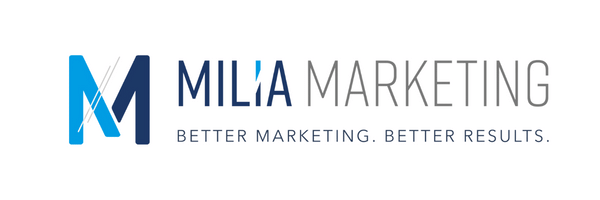- Solutions
 Website design And Development
Website design And Development Search Engine Optimization
Search Engine Optimization - Industries
- Results
- Resources
Google Analytics 4 Migration Services
Migrate to Google Analytics 4 with Milia Marketing. "Old" Google Analytics will be shut down in July 2023. Complete our form to the right to start the process.
Days
Hours
Minutes
Seconds
Act now or you will lose out on critical data in GA4.
Google Analytics 4 will allow us to be more intentional in our data collection and analysis
Audit and Assessment
Milia Marketing will conduct an audit of your current Google Analytics setup to assess the scope and complexity of the migration process. This includes a review of your current tracking and data collection methods, data quality, and any custom configurations that may impact the migration.
Data Mapping and Mapping Strategy
Milia Marketing will map your existing Google Analytics 3 data to the new Google Analytics 4 data model. This includes defining new data elements and mapping them to your existing data.
Implementation and Configuration
Milia Marketing will implement and configure Google Analytics 4 on your website or app, including setting up new properties, views, and goals. This includes configuring custom events and tracking, setting up cross-domain tracking, and configuring e-commerce tracking if applicable.
Data Migration
Milia Marketing will migrate your existing Google Analytics 3 data to Google Analytics 4. This includes transferring historical data and ensuring that data is accurately mapped and stored in the new data model.
Testing and Validation
Milia Marketing will conduct testing and validation of the new Google Analytics 4 setup to ensure that data is accurately tracked and reported. This includes checking that data is properly mapped, that tracking is working as expected, and that data is being reported correctly.

Milia Marketing is rated 4.8 / 5 average from 121 reviews on DesignRush, FeaturedCustomers & Clutch
Frequently Asked Questions
What happens if I don't switch over from Google Analytics to Google Analytics 4?
If you don’t switch to Google Analytics 4, you may miss out on some of the new features and capabilities that are available in the new version. This includes improved tracking and user insights, as well as more advanced machine learning capabilities.
What are the differences between Google Analytics 3 and Google Analytics 4?
Google Analytics 3 (also known as Universal Analytics) and Google Analytics 4 are two different versions of the Google Analytics platform with some key differences. Here are some of the main differences between the two:
Data Model: The data model is one of the most significant differences between the two versions. Google Analytics 3 tracks user behavior in terms of sessions, pageviews, and events, whereas Google Analytics 4 focuses more on user-centric measurement, which means it tracks events performed by users and provides insights into their behavior.
Event Tracking: Google Analytics 4 offers more advanced event tracking capabilities compared to Google Analytics 3. It allows you to track events across multiple platforms, devices, and channels.
Machine Learning: Google Analytics 4 includes more advanced machine learning capabilities, such as predictive metrics, churn probability, and automated insights.
User Analysis: Google Analytics 4 offers more detailed user analysis, including demographic information, interests, and lifetime value. This allows you to better understand your audience and tailor your marketing efforts accordingly.
Privacy: Google Analytics 4 is designed to be more privacy-friendly, with features such as automatic data deletion and better user controls.
Reporting: Google Analytics 4 offers new and updated reporting features, such as a more flexible dashboard, real-time data, and integration with Google Ads.
Overall, Google Analytics 4 is a more advanced and user-centric version of the platform with improved tracking, analysis, and reporting capabilities. However, the two versions have different data models, which means that some reports and metrics may not be directly comparable between the two.
How long will it take to switch from Google Analytics 3 to Google Analytics 4?
The time it takes to switch a Google Analytics 3 account to Google Analytics 4 can vary depending on several factors, including the size and complexity of the account, the level of customization and tracking that has been implemented, and the resources and expertise of the marketing agency performing the migration.
In general, Milia Marketing can typically complete the migration process within a few days to a few weeks, depending on the complexity of the account. Here are some of the factors that can impact the time it takes to switch from Google Analytics 3 to Google Analytics 4:
Account Size: The size of the account, including the number of properties, views, and goals, can impact the time it takes to complete the migration. A larger account with more properties and views will typically take longer to migrate.
Customization and Tracking: The level of customization and tracking that has been implemented in the Google Analytics 3 account can impact the time it takes to migrate to Google Analytics 4. If there are complex custom tracking configurations or integrations with other tools, this may require more time to migrate.
Technical Expertise: The technical expertise of the marketing agency performing the migration can also impact the time it takes to complete the migration. An agency with more experience and expertise in Google Analytics and data migration will typically be able to complete the process more quickly and efficiently.
Data Quality: The quality of the data in the Google Analytics 3 account can impact the time it takes to complete the migration. If the data is incomplete, inconsistent, or inaccurate, this may require additional time to clean and prepare the data for migration.
Overall, while switching from Google Analytics 3 to Google Analytics 4 can vary depending on these factors, Milia Marketing can typically complete the process within a few days to a few weeks.











